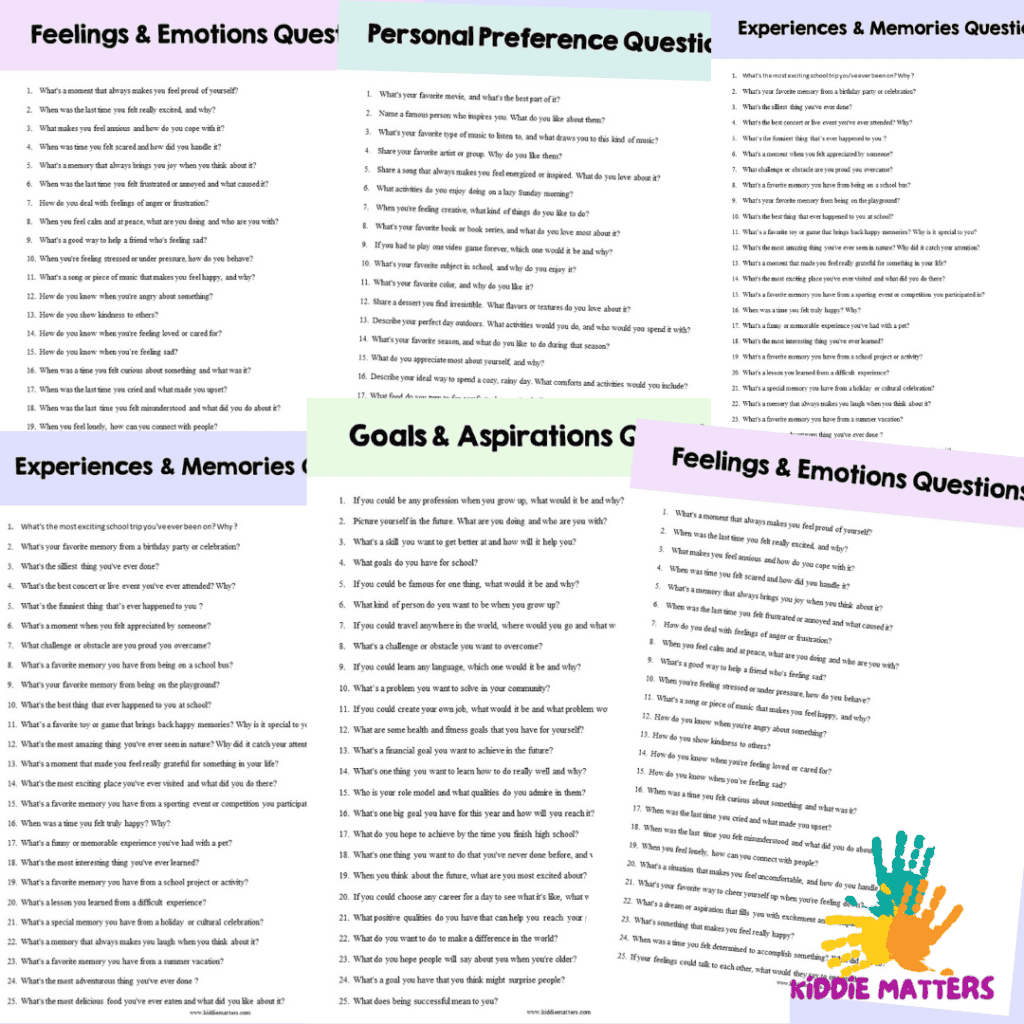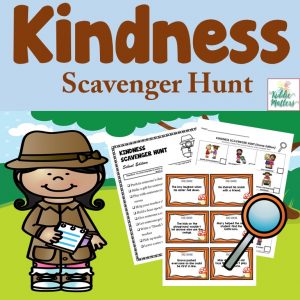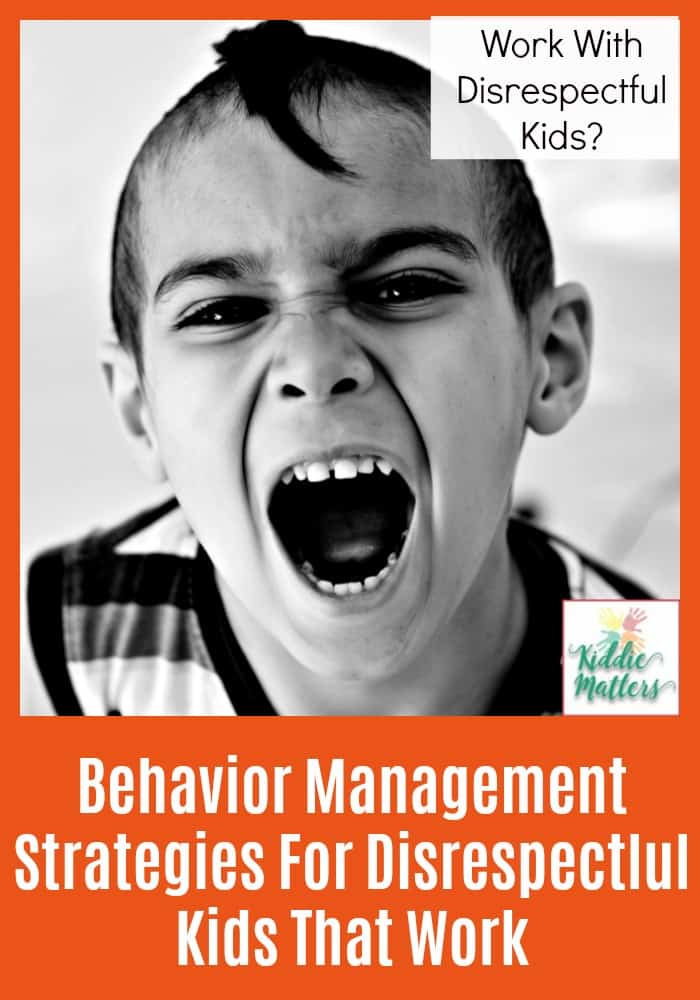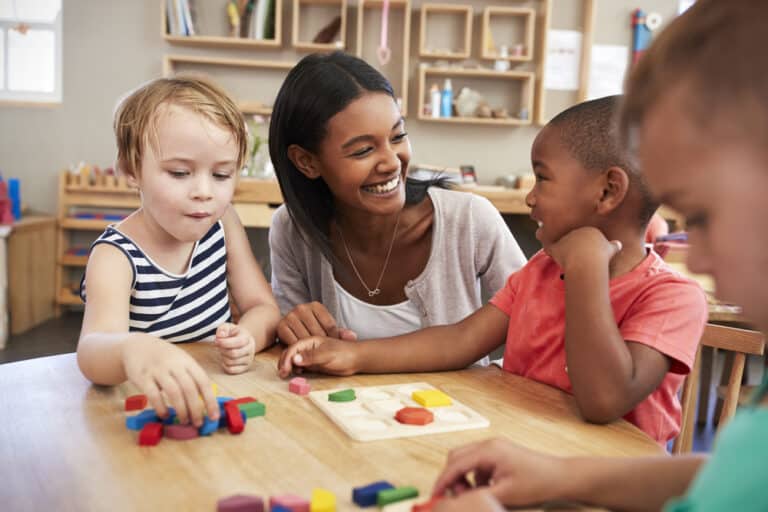How To Make Kids Feel Special: 100 Relationship Building Questions
As a school social worker, there never seems to be enough hours in the day to get everything done. It could be a voice-mail from a parent who needs you to call them ‘asap,’ a teacher wanting to meet to discuss a student, or being scheduled to do some task unrelated to your role.
Each day feels like a race against the clock with tasks piling up faster than you can tackle them. You spend so much time putting out fires that building connection with kids takes a back seat. Over time, you find yourself missing out on moments to connect and really get to know the children you serve.
Bonus: As a bonus for joining my weekly newsletter, get the free printable of 100 Relationship Building Questions to help build rapport with kids.
- That’s a Huge Problem
- But First, Kids Need This To Open Up
- Here’s the Solution
- But Beware of This
- 100 Powerful Relationship Questions
- Personal Preferences Questions
- Feelings and Emotions Questions
- Experiences and Memories Questions
- Goals and Aspirations Questions
- How You Can Use Relationship Building Questions
- Want More?
- Your Turn
That’s a Huge Problem
Building positive relationships with kids is essential if you want to make a difference in their lives. Studies show that having a strong relationship with children can help them thrive academically, socially, and emotionally. Kids tend to be more receptive of your support and guidance when they feel connected to you.
I have to agree with the science. I find that it doesn’t matter how great the interventions, or how fun the lesson, if I don’t have a relationship with kids, it can be an uphill battle getting them to buy-in and work towards their goals.
For instance, I remember having a session with a student I hadn’t seen in a while. When we finally met, I felt like I had to dive right in and help them. However, as I launched into my session agenda, immediately their wall went up. It was like they had a fortress built around them. No matter how hard I tried to engage them, all I got were eye rolls and one-word answers.
You want to make a difference in children’s social emotional well-being so they can be successful now and later on in life. That’s hard to do if kids don’t trust you enough to put their guard down and let you in. After several years in the field, I’ve found a simple and effective way to build rapport with kids, even when you’re busy!
Related: How To Build Trust With Kids: 10 Trauma Informed Practices (printable)
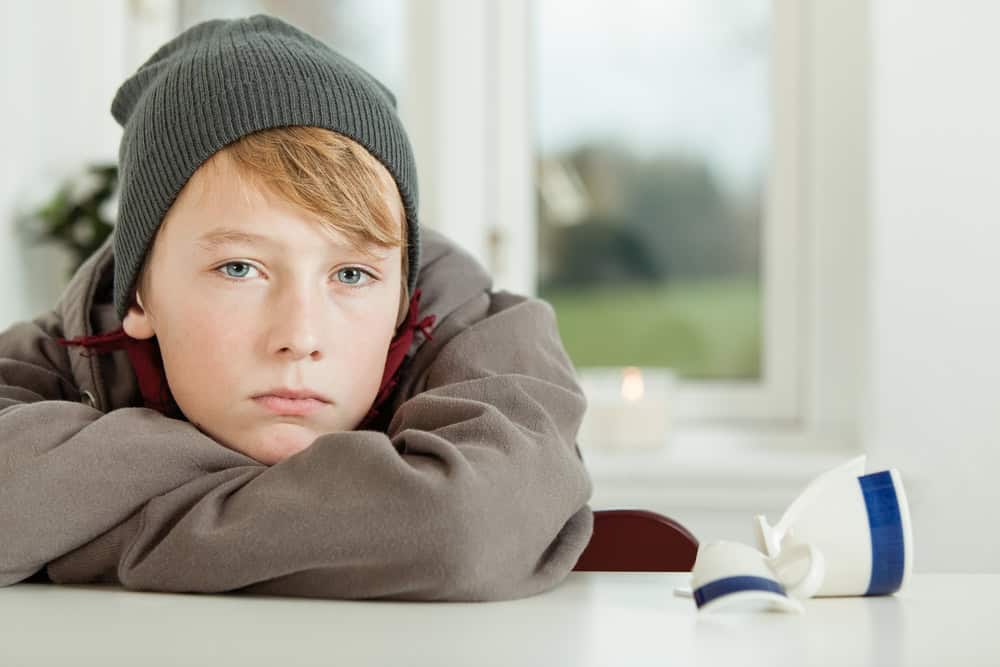
But First, Kids Need This To Open Up
Feeling safe is crucial for children to open up and trust you. Sadly, many kids were betrayed by trusted adults and they aren’t eager to let new people in. They need to know they can count on you to keep them out of harm’s way. Putting a wall up is how they’ve learned to survive and avoid more pain. The good news? You can help kids feel comfortable enough to put their walls down and trust again.
Studies show that when children feel safe, they’re more likely to form strong bonds and build meaningful connections with others. Feeling connected makes children more willing to share their thoughts and feelings without worrying about being judged or teased. When kids feel like they belong, they trust that they’ll be listened to and supported, no matter what.
Establishing safety involves creating an environment where children feel physically, emotionally, and psychologically safe. You can create physical safety by making sure there are no dangers around, like fixing broken equipment or making sure hallways are supervised.
Creating psychological and emotional safety includes setting boundaries and enforcing rules that encourage a supportive atmosphere where children feel respected and seen.
When kids don’t feel safe, their ability to open up and build relationships can be significantly impaired. They may hesitate to express their thoughts and feelings because they worry others will criticize or make fun of them. This reluctance to open up can lead to feelings of isolation and loneliness, making it difficult for kids to connect with you and others on a deeper level.
Here’s the Solution
Relationship building questions are effective at helping kids feel comfortable connecting and expressing themselves. These get to know you questions are helpful because they allow you to show genuine interest in children’s thoughts and feelings. Also, these questions invite kids to share more about themselves, which can make them feel valued and understood.
When I spend quality time getting to know kids, it’s remarkable how engaged they can be. In those moments, I see the sparkle in their eyes, and I feel their walls come down a little. It’s these simple, yet profound, interactions that remind me of the privilege it is to support and guide them on their journey.
However, when you’re spread too thin, it can be hard to think of meaningful things to talk about with kids. Having a list of ‘get to know you’ questions on hand has been a game changer for me. These relationship building questions can help children feel more comfortable and willing to share about themselves, their interests, and experiences.
But Beware of This
Knowing what questions to ask is key. Focus on asking open-ended questions that encourage children to fully express themselves and engage in deeper conversations. You’ll want to avoid the following types of questions when trying to build rapport with kids:
- Closed-Ended Questions: Closed-ended questions often result in short, one-word answers, which might limit the depth of conversation and the chance to understand the student’s thoughts and feelings better. An example of a closed-ended “get to know you” question might be: “Do you have any siblings?” This question can be answered with a simple “yes” or “no” and doesn’t leave much room for elaboration or open-ended discussion.
- Loaded Questions: A loaded question is one that already assumes something about the person being asked, which can make them feel uncomfortable or defensive. For example, asking a student, “Why do you seem so angry?” is an example of a loaded relationship building question.” It assumes the student is angry and prompts them to justify or explain their feelings without acknowledging the possibility of other emotions or reasons for their behavior.
- Intrusive Questions: Avoid asking kids intrusive relationship building questions that delve into areas of the student’s life that are outside the scope of their academic and social emotional well-being. An example of an intrusive question is asking students about family finances or about a traumatic incident they’ve experienced. It’s important to respect boundaries and only ask questions that are relevant and respectful of children’s privacy.
Related: How To Build Rapport With Kids: 30 Ways To Connect
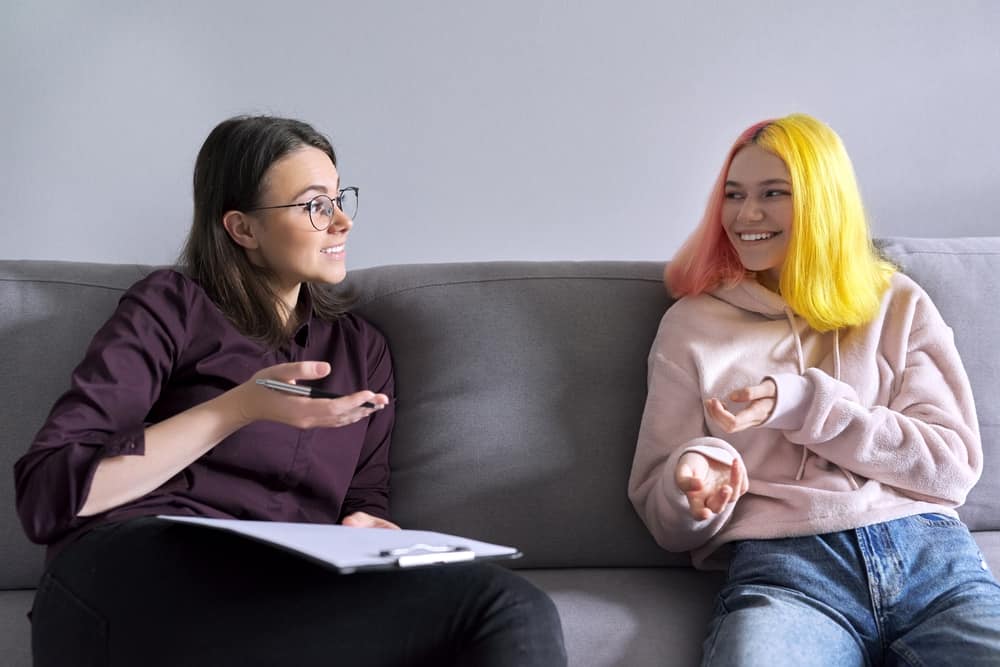
100 Powerful Relationship Questions
Asking thoughtful, open-ended get to know you questions can strengthen your relationship with children so you can support their growth and development in meaningful ways. Below are 101 questions designed to spark meaningful discussions and strengthen bonds with kids.
Personal Preferences Questions
- What’s your favorite movie, and what’s the best part of it?
- Name a famous person who inspires you. What do you like about them?
- What’s your favorite type of music to listen to, and what draws you to this kind of music?
- Share your favorite artist or group. Why do you like them?
- Share a song that always makes you feel energized or inspired. What do you love about it?
- What activities do you enjoy doing on a lazy Sunday morning?
- When you’re feeling creative, what kind of things do you like to do?
- What’s your favorite book or book series, and what do you love most about it?
- If you had to play one video game forever, which one would it be and why?
- What’s your favorite subject in school, and why do you enjoy it?
- What’s your favorite color, and why do you like it?
- Share a dessert you find irresistible. What flavors or textures do you love about it?
- Describe your perfect day outdoors. What activities would you do, and who would you spend it with?
- What’s your favorite season, and what do you like to do during that season?
- What do you appreciate most about yourself, and why?
- Describe your ideal way to spend a cozy, rainy day. What comforts and activities would you include?
- What food do you turn to for comfort when you’re feeling down, and why does it make you feel better?
- Imagine your perfect vacation spot. What do you like about it?
- What’s your favorite way to relax after a busy day?
- Explain why you enjoy playing or watching a particular sport. What makes it exciting for you?
- What’s your favorite type of weather, and what do you like to do when it’s like that outside?
- Who’s your favorite social media influencer, and what do you like about them?
- What’s your favorite social media platform and how do you spend your time on it?
- What’s your favorite thing to do after school? Why?
- What’s your favorite thing to do before going to bed? Why?
Feelings and Emotions Questions
- What’s a moment that always make you feel proud of yourself?
- When was the last time you felt really excited, and why?
- What makes you feel anxious and how do you cope with it? (Explore kids feelings in depth with the Feelings Guided Journal)
- When was time you felt scared and how did you handle it?
- What’s a memory that always brings you joy when you think about it?
- When was the last time you felt frustrated or annoyed and what caused it?
- How do you deal with feelings of anger or frustration?
- When you feel calm and at peace, what are you doing and who are you with?
- What’s a good way to help a friend who’s feeling sad?
- When you’re feeling stressed or under pressure, how do you behave?
- What’s a song or piece of music that makes you feel happy, and why?
- How do you know when you’re angry about something?
- How do you show kindness to others? (This kindness scavenger hunt is a great tool for helping kids learn to appreciate what they have. Plus, kids feel good about themselves when they perform acts of kindness. There are two versions of the scavenger hunt. One has tasks kids can do at home and the other are acts of kindness kids can do at school).
- How do you know when you’re feeling loved or cared for?
- How do you know when you’re feeling sad?
- When was a time you felt curious about something and what was it?
- When was the last time you cried and what made you upset?
- When was the last time you felt misunderstood and what did you do about it?
- When you feel lonely, how can you connect with people?
- What’s a situation that makes you feel uncomfortable, and how do you handle it?
- What’s your favorite way to cheer yourself up when you’re feeling down?
- What’s a dream or aspiration that fills you with excitement and anticipation?
- What’s something that makes you feel really happy
- When was a time you felt determined to accomplish something? What did you do?
- If your feelings could talk to each other, what would they say to one another?
Experiences and Memories Questions
- What’s the most exciting school trip you’ve ever been on? Why ?
- What’s your favorite memory from a birthday party or celebration?
- What’s the silliest thing you’ve ever done?
- What’s the best concert or live event you’ve ever attended? Why?
- What’s the funniest thing that’s ever happened to you ?
- What’s a moment when you felt appreciated by someone?
- What challenge or obstacle are you proud you overcame?
- What’s a favorite memory you have from spending time with your friends?
- What’s your favorite thing about being a kid?
- What’s the best thing that ever happened to you at school?
- What’s a favorite toy or game that brings back happy memories?
- What’s the most amazing thing you’ve ever seen in nature?
- What’s a moment that made you feel really grateful for something in your life?
- What’s the most exciting place you’ve ever visited?
- What’s a favorite memory you have from a sporting event or competition you participated in?
- When was a time you felt truly happy? Why?
- What’s a funny or memorable experience you’ve had with a pet?
- What’s the most interesting thing you’ve ever learned?
- What’s a favorite memory you have from a school project or activity?
- What’s a lesson you learned from a difficult experience?
- What’s a special memory you have from a holiday or cultural celebration?
- What’s a memory that always makes you laugh when you think about it?
- What’s a favorite memory you have from a summer vacation?
- What’s the most adventurous thing you’ve ever done ?
- What’s the most delicious food you’ve ever eaten and what did you like about it?
Goals and Aspirations Questions
- If you could be any profession when you grow up, what would it be and why?
- Picture yourself in the future. What are you doing and who are you with?
- What’s a skill you want to get better at and how will it help you?
- What goals do you have for school? (This Goal-Getters Toolkit will help kids identify their values and crush their S.M.A.R.T goals!)
- If you could be famous for one thing, what would it be and why?
- What kind of person do you want to be when you grow up?
- If you could travel anywhere in the world, where would you go and what would you do?
- What’s a challenge or obstacle you want to overcome?
- If you could learn any language, which one would it be and why?
- What’s a problem you want to solve in your community?
- If you could create your own job, what would it be and what problem would it solve?
- What are some health and fitness goals that you have for yourself?
- What’s a financial goal you want to achieve in the future?
- What’s one thing you want to learn how to do really well and why?
- Who is your role model, and what qualities do you admire in them?
- What’s one big goal you have for this year and how will you reach it?
- What do you hope to achieve by the time you finish high school?
- What’s one thing you want to do that you’ve never done before, and why?
- When you think about the future, what are you most excited about?
- If you could choose any career for a day to see what it’s like, what would you pick? Why?
- What positive qualities do you have that can help you reach your goals?
- What do you want to do to make a difference in the world?
- What do you hope people will say about you when you’re older?
- What’s a goal you have that you think might surprise people?
- What does being successful mean to you?
How You Can Use Relationship Building Questions
- Jenga Blocks: Write open-ended questions on each Jenga block. Next, invite students to pick a block and answer the question on it. It helps if you also take a turn and answer questions you feel comfortable sharing. This game creates a relaxed atmosphere for students to chat with you without the usual pressure of one-on-one talks. It makes interactions feel more natural and easygoing.
- Conversation Cubes: Try using conversation cubes with various relationship building questions on each side. Students can roll the cube to start discussions. These cubes encourage meaningful conversations and help create a supportive atmosphere where students can reflect on personal experiences and share their opinions.
- Journal Prompts: Give kids relationship building questions as journal prompts to encourage them to self-reflect and express themselves. By regularly engaging students in journaling activities, they get more comfortable sharing their thoughts and feelings with you.
- Pass the Talking Stick: During group sessions, introduce a talking stick and invite students to pass it around. Each student can take a turn holding the stick and answering a get to know you question. This activity encourages participation and helps students share about themselves in a structured and respectful manner.
- Walk and Talk: Walking and talking with students outside is a great way to encourage them to open up and connect. By asking relationship building questions during the walk, students can feel more at ease in a relaxed environment. This activity provides an opportunity for meaningful conversations to unfold naturally as students enjoy the fresh air and change of scenery.
- Question Cards: Create a deck of question cards using the ‘get to know you’ questions. These cards provide a structured framework for starting discussions and encourage kids to share insights about themselves. These cards can be used during icebreaker activities, group discussions, or one-on-one interactions. Get to know you question cards are effective at getting kids to open up and let you in.
Want More?
For more ideas on how to connect with kids and validate them, check out How to Make Students Feel Cared For: 101 Validating Statements.
Before you go, get my FREE cheat sheet: 100 Relationship Building Questions
Your Turn
How do you validate kids and let them know you’re there to support them? Share in the comments!

Yanique Chambers, LCSW/MA
Hi! I’m a Licensed Clinical Social Worker and a New York State certified school social worker. I believe that you can make a difference in children’s social emotional well-being, even when you’re busy. The good news, all you need is 10 minutes a day! Start here >>
